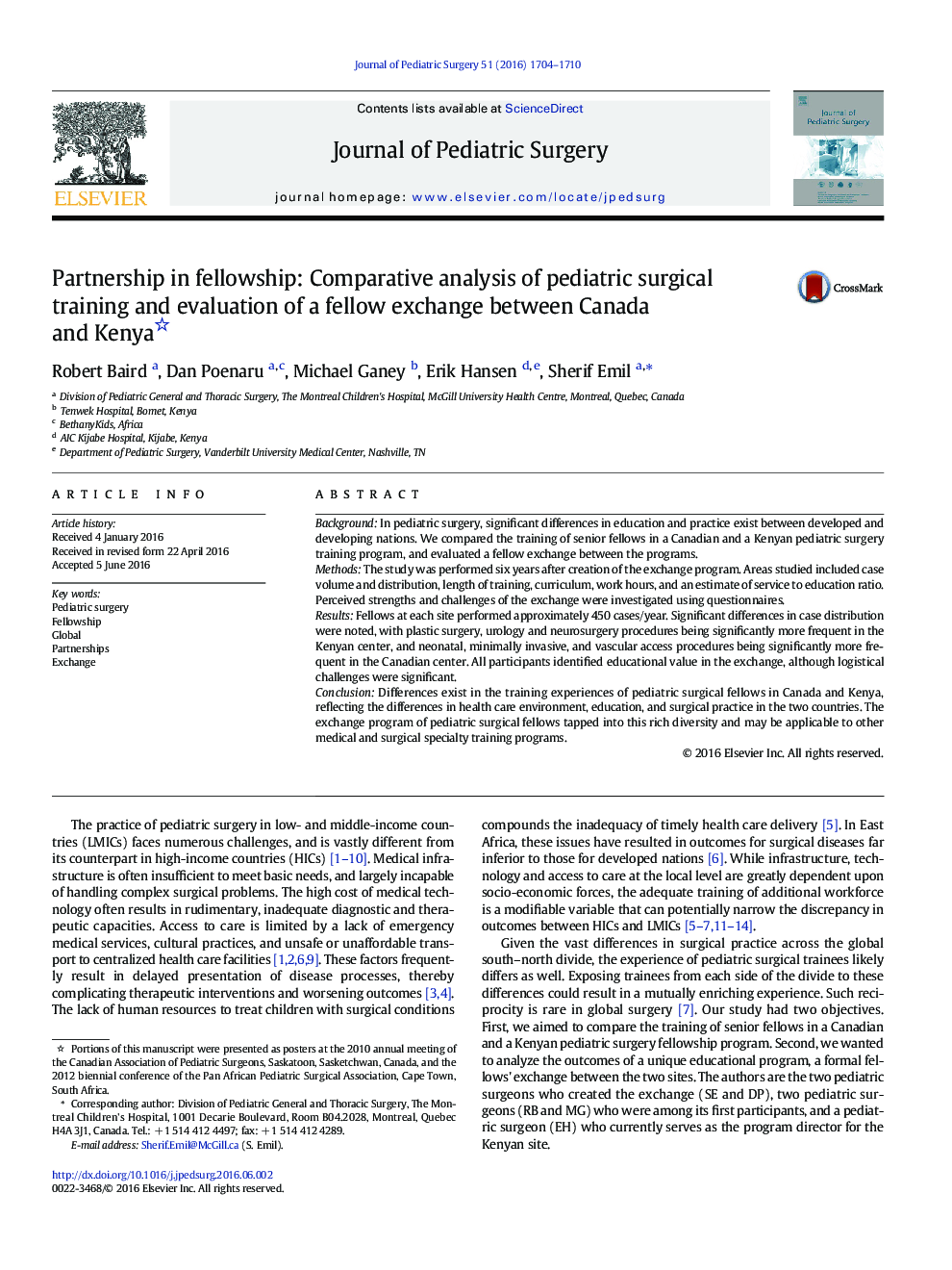| Article ID | Journal | Published Year | Pages | File Type |
|---|---|---|---|---|
| 4154685 | Journal of Pediatric Surgery | 2016 | 7 Pages |
BackgroundIn pediatric surgery, significant differences in education and practice exist between developed and developing nations. We compared the training of senior fellows in a Canadian and a Kenyan pediatric surgery training program, and evaluated a fellow exchange between the programs.MethodsThe study was performed six years after creation of the exchange program. Areas studied included case volume and distribution, length of training, curriculum, work hours, and an estimate of service to education ratio. Perceived strengths and challenges of the exchange were investigated using questionnaires.ResultsFellows at each site performed approximately 450 cases/year. Significant differences in case distribution were noted, with plastic surgery, urology and neurosurgery procedures being significantly more frequent in the Kenyan center, and neonatal, minimally invasive, and vascular access procedures being significantly more frequent in the Canadian center. All participants identified educational value in the exchange, although logistical challenges were significant.ConclusionDifferences exist in the training experiences of pediatric surgical fellows in Canada and Kenya, reflecting the differences in health care environment, education, and surgical practice in the two countries. The exchange program of pediatric surgical fellows tapped into this rich diversity and may be applicable to other medical and surgical specialty training programs.
